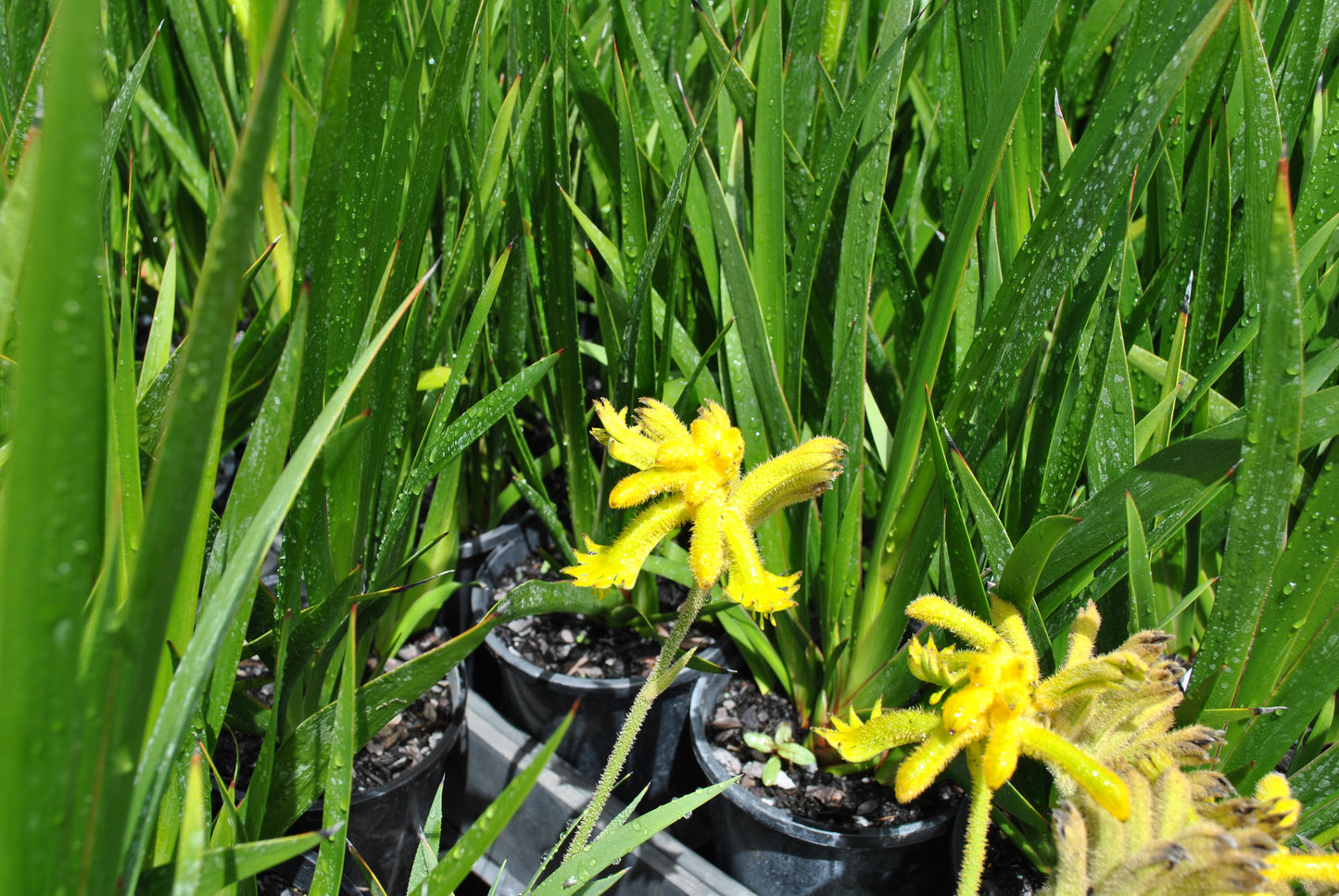Yellow Gem Kangaroo Paw (Anigozanthos 'Yellow Gem')
Yellow Gem Kangaroo Paw (Anigozanthos 'Yellow Gem')
Couldn't load pickup availability
$80 minimum spend required for checkout.
Why we love this plant!
Why we love this plant!
A hardy and long-flowering plant, Anigozanthos 'Yellow Gem' produces bright yellow, tubular flowers that attract native birds, bees, and other pollinators. Thriving in South East Queensland’s climate, it tolerates heat and periods of dryness, making it a good option for low-maintenance gardens. Its upright, grass-like foliage provides texture and contrast, while the tall flower spikes create an eye-catching feature in garden beds, borders, and pots. This plant is particularly valuable for wildlife-friendly gardens, offering nectar for honeyeaters and shelter for beneficial insects.
Care Considerations
Care Considerations
Watering preferences:
- Moderate watering; drought-tolerant once established.
Mulching preferences:
- Applying organic mulch helps retain soil moisture and suppress weeds.
Fertilising preferences:
- A balanced fertiliser can be applied in spring to promote healthy growth.
Pruning preferences:
- Remove spent flower stems and damaged foliage to maintain appearance and encourage new growth.
Good to Know:
- Nectar-feeding birds such as honeyeaters and native bees are drawn to its vibrant yellow flowers.
Plant Details
Plant Details
| Common uses: | Border planting, Container growing, Seasonal colour, Pollinator-friendly, Drought hardy/tolerant, Low maintenance garden, Robust/Hardy, Coastal garden, Rocky or dry gardens (Xeriscape), Feature plant, Wow! factor, Attractive foliage, Textural interest, and Cut flowers |
| Expected Height Range: | 0.9 m - 1.5 m |
| Spread Range: | 0.6 m - 0.9 m |
| Preferred positioning: | Full sun |
| Flower Season/s: | Summer and Spring |
| Flower Colour/s: |
|
| Plant life cycle: | Perennial |
| Habitat: | A cultivated hybrid that does not occur naturally in the wild. Its parent species include Anigozanthos flavidus and Anigozanthos pulcherrimus, both native to Western Australia. Anigozanthos flavidus typically grows along riverbanks and in swampy areas, while Anigozanthos pulcherrimus is found in sandy soils within heathlands. |
| Leaf information: | Long, slender, strappy green leaves with a slightly arching habit |
| Preferred Soil: | Prefers well-drained, sandy or loamy soils, tolerating low-fertility conditions, but thrives best in moderately dry to moist environments with good drainage. |
Share


